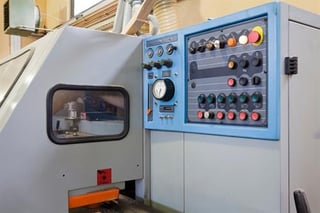
Your workshop catches fire and burns the equipment that was stored or used within. A hurricane floods your office and destroys both the maintenance records and the vehicles that were kept on site. A vandal breaks in and causes irreparable damage to your machinery over a late night or long weekend. Whatever situation you find yourself in, one of the thoughts that may raise your stress levels is how to prove the value to your insurance company. Here's a look at how retrospective appraisals can help in these difficult circumstances.
Dealing with a Business Loss: Retrospective Appraisals
How can an appraiser determine the value of equipment that has been significantly damaged? Though some of the process may involve some level of educated estimation, most of it is grounded solidly in appraisal practices and methods. Some information will be easily obtained, while other information will require careful study of what's left and any paperwork that is left after a disaster.
Let's take the example of a cargo van that has been burned in a warehouse fire and had significant damage due to the heat involved. Most business owners and equipment operators, even many mechanics, would only see the burned shell of the van. Fortunately, equipment appraisers take a different view of the machinery they're appraising.
To start, the appraiser will work with any paperwork and information that is available. The original purchase paperwork, maintenance logs, receipts from repairs: all these papers paint a picture of what kind of van it was, the care it was given over the years and possibly a record of how many miles it had on it at the time of the loss. This information allows the appraiser to calculate the cargo van's value in general terms, based on the market conditions and demand for that type of vehicle.
But what if the van had been poorly used over the years? What if there was unrepaired body damage or significant problems with its mechanical systems due to being neglected or abused? On the other hand, what if it had much lower miles than most vehicles of that age and was maintained in impeccable condition? What if the business had added machinery or options to the vehicle that would increase its overall value? These are all aspects the equipment appraiser must take into account when calculating the value of a piece of equipment after a loss.
Another area to consider is when the damage took place. If the van was stored at a remote site and the damage was discovered months after the fact, how do you determine value? What if the bottom has fallen out of the van market in the intervening weeks and months? Should the van be appraised at the value it held when the damage was discovered or at the estimated time of the the loss? An equipment appraiser can retroactively value the machinery to the loss date using verified, tested appraisal methods.
Having to deal with a business loss is stressful, but having the option of getting retrospective appraisals performed on damaged equipment helps reduce the load. Whether you're claiming a loss on tax returns or pursuing compensation from your insurance company for the damage, a retrospective appraisal can help your business get back on its feet faster. Make sure you work with certified equipment appraisers, as the methodologies they use will hold up well against scrutiny in court, insurance and tax agency circles.

